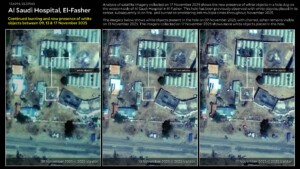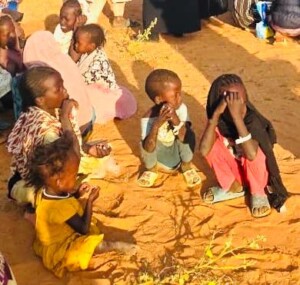‘Khartoum is creating an illusion of stability’: Sudanese think tank
According to a new report by the Sudan Democracy First Group, the ruling National Congress Party and its international supporters are working hard to obscure the violence and political unrest in Sudan.
According to a new report by the Sudan Democracy First Group (SDFG) the ruling National Congress Party (NCP) and its international supporters are working hard “to obscure the violence and political unrest which continue to convulse Sudan, and are accelerating the economic, social and cultural deprivation of its people”.
In the English version of SDFG’s latest report, Manufacturing the Illusion of Stability in Sudan, the Kampala-based think tank deals with “the dynamics behind, and impact of, the campaign orchestrated by the NCP and its international supporters.
The 70-page report “exposes the external and internal partners of the regime who have participated in projecting an illusion of regime functionality at the expense of a genuine resolution of Sudan’s multiple crises,” the SDFG says in a press release today.
It also challenges the political opposition to engage in deeper consultation with Sudanese citizens and develop “a genuine grassroots movement for change”.
The Group warns that if the United States economic sanctions on Sudan will be lifted after three months, increased oversight of Sudanese financial flows will be vital.
“The biggest beneficiary of any lifting of sanctions will be the ruling party, its security institutions, and its private companies,” the report reads. “Mechanisms must be established to prevent increased weapons flows, support for militias and expansion of the architecture of state corruption.”
Political solution
According to the SDFG, “a just peace and lasting stability” cannot be achieved “through fragmented responses to Sudan’s various conflicts and political challenges.
“The biggest beneficiary of any lifting of sanctions will be the ruling party, its security institutions, and its private companies.”
“Ignoring the common roots of these conflicts, and responding to them through separately negotiated agreements, or through military means, will only add to the accumulation of grievances and exclusion. Only a comprehensive political solution will end the cycle of violence,” the think tank states.
The situation of the Sudanese refugees and displaced people in the country must be resolved through genuine consultation with the communities. “A conference of Sudanese refugees and displaced persons might be considered.
“All parties involved in the Sudanese crisis should put the situation of displaced people and refugees at the heart of their political proposals and discourse.”
As for the Sudanese opposition, it “must develop its discourse and working tools and strengthen its understanding and response to the basic issues in people's daily lives.
“To do this, forces working for civil and political change must continue efforts to unify around a common platform, refine the clarity of their discourse and develop detailed alternative policies for the transition period; support the restoration of a genuinely independent political role for civil society by encouraging its active participation in the process of change and building bridges with political forces,” the Group recommends.











 and then
and then